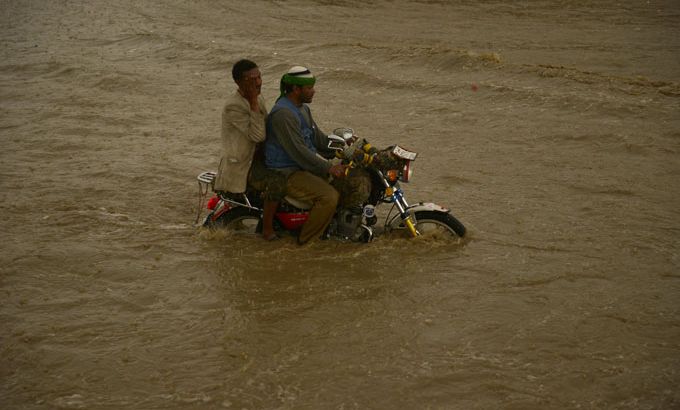Severe weather strikes the Middle East
Sandstorms and flooding have stretched from Iraq to Yemen.

What is usually a quiet time of year weatherwise for the Middle East has been surprisingly stormy for many parts of the region.
Initially the most severe weather struck Saudi Arabia and Oman. The resulting flooding led to the deaths of at least twenty people across the regions.
Keep reading
list of 4 items‘Mama we’re dying’: Only able to hear her kids in Gaza in their final days
Europe pledges to boost aid to Sudan on unwelcome war anniversary
Birth, death, escape: Three women’s struggle through Sudan’s war
The heaviest of the rain then tracked northwards, producing thunderstorms in Kuwait, Iran and Iraq.
For several days torrential rain fell on the border of Iraq and Iran. To the southeast of Baghdad, this rain has now caused widespread flooding.
Homes have been inundated by the water and 3,200 people have been forced to evacuate.
The Iraqi Red Crescent has put up hundreds of tents for those worst affected, and provided them with much-needed food and blankets.
While flooding submerged parts of Iraq and Iran, the Arabian Peninsula has continued to see showers and thunderstorms as well.
Generally the showers bubbled up over the mountains in western Saudi and tracked eastwards.
The thunderstorms that developed on 7 May 2013 kicked up a large amount of dust. A giant dust storm, known as a haboob developed, plunged the city of Riyadh into darkness.
The haboob steadily tracked eastwards across Bahrain and Qatar late in the evening.
This weather is fairly unusual for the region at this time of year, which has led some people to believe conspiracy theories about cloud seeding. However, the idea that the UAE can manipulate their clouds to produce thunderstorms that originate in western Saudi Arabia is somewhat far-fetched.
The showers across the Arabian Peninsula have now mostly cleared away, and the rain over Iraq is slowly breaking up. Over the next few days the weather will return to the dry settled weather that is more typical at this time of year.
In many parts of the world the return to sunshine would be a cause for celebration, but in the Middle East, where temperatures can top 50C in summer, the unsettled weather will be missed by many residents.